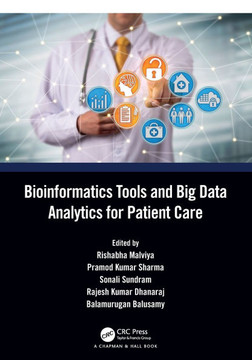
Createspace Independent Publishing Platform
Big Data A Tool For Inclusion Or Exclusion? Understanding The Issues
Product Code:
9781535337441
ISBN13:
9781535337441
Condition:
New
$13.38
We are in the era of big data. With a smartphone now in nearly every pocket, a computer in nearly every household, and an ever-increasing number of Internet-connected devices in the marketplace, the amount of consumer data flowing throughout the economy continues to increase rapidly. The analysis of this data is often valuable to companies and to consumers, as it can guide the development of new products and services, predict the preferences of individuals, help tailor services and opportunities, and guide individualized marketing. At the same time, advocates, academics, and others have raised concerns about whether certain uses of big data analytics may harm consumers, particularly lowincome and underserved populations. To explore these issues, the Federal Trade Commission ("FTC" or "the Commission") held a public workshop, Big Data: A Tool for Inclusion or Exclusion?, on September 15, 2014. The workshop brought together stakeholders to discuss both the potential of big data to create opportunities for consumers and to exclude them from such opportunities. The Commission has synthesized the information from the workshop, a prior FTC seminar on alternative scoring products, and recent research to create this report. Though "big data" encompasses a wide range of analytics, this report addresses only the commercial use of big data consisting of consumer information and focuses on the impact of big data on low-income and underserved populations. Of course, big data also raises a host of other important policy issues, such as notice, choice, and security, among others. Those, however, are not the primary focus of this report. As "little" data becomes "big" data, it goes through several phases. The life cycle of big data can be divided into four phases: (1) collection; (2) compilation and consolidation; (3) analysis; and (4) use. This report focuses on the fourth phase and discusses the benefits and risks created by the use of big data analytics; the consumer protection and equal opportunity laws that currently apply to big data; research in the field of big data; and lessons that companies should take from the research. Ultimately, this report is intended to educate businesses on important laws and research that are relevant to big data analytics and provide suggestions aimed at maximizing the benefits and minimizing its risks.
| Author: Federal Trade Federal Trade Commission, Penny Hill Press |
| Publisher: CreateSpace Independent Publishing Platform |
| Publication Date: Jul 18, 2016 |
| Number of Pages: 48 pages |
| Language: English |
| Binding: Paperback |
| ISBN-10: 1535337443 |
| ISBN-13: 9781535337441 |

Big Data A Tool For Inclusion Or Exclusion? Understanding The Issues
$13.38
We are in the era of big data. With a smartphone now in nearly every pocket, a computer in nearly every household, and an ever-increasing number of Internet-connected devices in the marketplace, the amount of consumer data flowing throughout the economy continues to increase rapidly. The analysis of this data is often valuable to companies and to consumers, as it can guide the development of new products and services, predict the preferences of individuals, help tailor services and opportunities, and guide individualized marketing. At the same time, advocates, academics, and others have raised concerns about whether certain uses of big data analytics may harm consumers, particularly lowincome and underserved populations. To explore these issues, the Federal Trade Commission ("FTC" or "the Commission") held a public workshop, Big Data: A Tool for Inclusion or Exclusion?, on September 15, 2014. The workshop brought together stakeholders to discuss both the potential of big data to create opportunities for consumers and to exclude them from such opportunities. The Commission has synthesized the information from the workshop, a prior FTC seminar on alternative scoring products, and recent research to create this report. Though "big data" encompasses a wide range of analytics, this report addresses only the commercial use of big data consisting of consumer information and focuses on the impact of big data on low-income and underserved populations. Of course, big data also raises a host of other important policy issues, such as notice, choice, and security, among others. Those, however, are not the primary focus of this report. As "little" data becomes "big" data, it goes through several phases. The life cycle of big data can be divided into four phases: (1) collection; (2) compilation and consolidation; (3) analysis; and (4) use. This report focuses on the fourth phase and discusses the benefits and risks created by the use of big data analytics; the consumer protection and equal opportunity laws that currently apply to big data; research in the field of big data; and lessons that companies should take from the research. Ultimately, this report is intended to educate businesses on important laws and research that are relevant to big data analytics and provide suggestions aimed at maximizing the benefits and minimizing its risks.
| Author: Federal Trade Federal Trade Commission, Penny Hill Press |
| Publisher: CreateSpace Independent Publishing Platform |
| Publication Date: Jul 18, 2016 |
| Number of Pages: 48 pages |
| Language: English |
| Binding: Paperback |
| ISBN-10: 1535337443 |
| ISBN-13: 9781535337441 |





